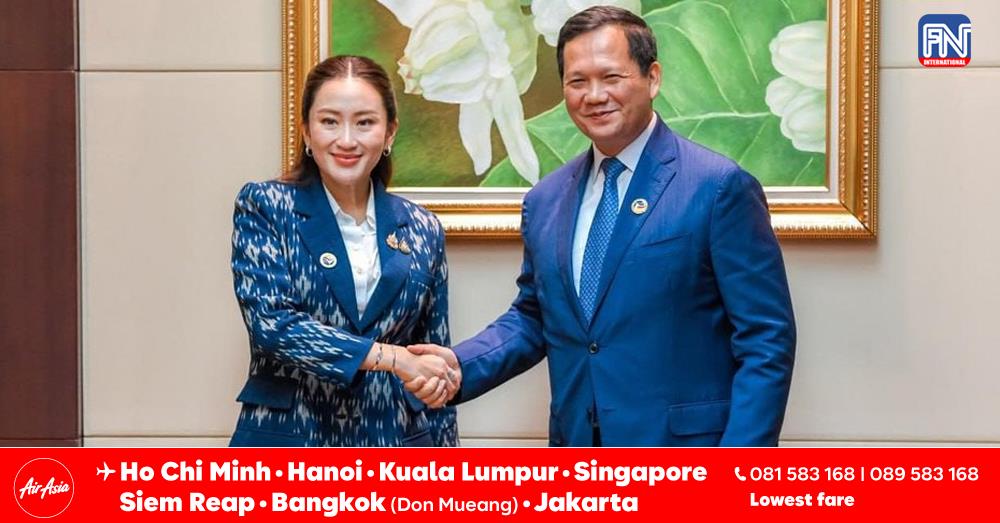(Phnom Penh): The recent flare-up along the Thailand-Cambodia border, culminating in the tragic death of a Cambodian soldier, serves as a stark reminder that unresolved historical grievances can simmer for decades, occasionally boiling over into renewed tension and conflict. While the two nations share deep cultural ties and are both integral members of ASEAN, the ongoing dispute over undemarcated areas, particularly around ancient temples like Preah Vihear, offers critical lessons for regional stability and international diplomacy.
At the heart of the ongoing friction lies a century-old disagreement over border demarcation, stemming from colonial-era mapping. Despite rulings by the International Court of Justice (ICJ) in 1962 and 2013 affirming Cambodian sovereignty over the Preah Vihear temple itself and surrounding land, pockets of dispute remain, fueled by differing interpretations of historical maps and nationalistic sentiments on both sides. This complex legacy underscores a fundamental truth: legal pronouncements alone, however authoritative, are not always sufficient to extinguish deeply entrenched nationalistic fervor.
Divergent Stances and Escalating Tensions
The current flashpoint, particularly around the Mum Bei (Emerald Triangle) area, highlights the starkly different positions of Phnom Penh and Bangkok. Cambodia has firmly rejected Thailand's request to withdraw its troops from the Mum Bei area, asserting it falls within Cambodian sovereign territory where troops have been permanently stationed. Phnom Penh has also declared its intention to take the dispute over four specific areas – Mum Bei, Ta Moan Thom Temple, Ta Moan Toch Temple, and Ta Krabei Temple – to the ICJ for a definitive resolution. Cambodian Prime Minister Hun Manet has publicly stated Cambodia's commitment to resolving the issue through international law and peaceful means.
Conversely, Thailand maintains its stance of not recognizing the compulsory jurisdiction of the ICJ in border disputes with Cambodia since 1960. The Thai Ministry of Defence, while acknowledging Cambodia's right to pursue action via international legal channels, reiterated that Thailand is under no obligation to comply. Deputy Prime Minister and Defence Minister Phumtham Wechayachai has emphasized that the border issue should be handled through existing bilateral mechanisms, such as the Joint Boundary Committee (JBC). While both sides have agreed to continue dialogue through these established committees, the fundamental disagreement over the ICJ's role remains a significant hurdle. The Thai military has also stated its readiness for a "high-level operation" in case of any violation of its sovereignty, a warning that underscores the fragility of the situation.
This divergence in approach was publicly manifested when a group of approximately 200 Thai protesters, identifying themselves as the "Students and People Network for Reforming Thailand," gathered outside the Cambodian Embassy in Bangkok. The protest, though reportedly peaceful and quickly dispersed by Thai police, underscored the strong nationalist sentiment within Thailand demanding respect for what they perceive as their country's sovereignty and rejecting Cambodian "encroachment" on Thai territory. Cambodian officials, including the ambassador to Thailand, confirmed the safety of embassy staff while rejecting the protesters' accusations.
Diplomacy and the ASEAN Role
Amidst these rising tensions, there have been crucial diplomatic interventions. The Thai Ministry of Defence has confirmed ongoing progress in discussions with their Cambodian counterparts, with both sides agreeing to ease tensions, maintain open lines of communication, and avoid armed confrontation. This commitment to dialogue through bilateral mechanisms like the GBC/JBC/RBC is a positive step, even as the ICJ debate continues.
Significantly, the current Chairman of ASEAN, Malaysian Prime Minister Anwar Ibrahim, has actively engaged with both Cambodian and Thai Prime Ministers, Paetongtarn Shinawatra and Hun Manet respectively, to mediate the ongoing border dispute. This direct intervention by the ASEAN Chair highlights the regional bloc's concern for stability among its members. While the "ASEAN Way" of non-interference has often limited decisive action in bilateral disputes, Malaysia's proactive role as Chair underscores the growing recognition within ASEAN that unresolved internal conflicts can undermine regional peace and integration. This external pressure and diplomatic engagement from a respected regional leader offer a vital avenue for de-escalation and finding common ground.
Lessons for a Volatile Region
Ultimately, the enduring border dispute between Thailand and Cambodia serves as a powerful reminder for all nations that peace and security are not static achievements, but rather require continuous commitment to dialogue, legal clarity, and mutual respect. Leaving historical grievances unresolved, even if seemingly dormant, carries the risk of future conflict. The distinct positions of Thailand and Cambodia, the rise of nationalist sentiment, the crucial role of bilateral talks versus international legal avenues, and the mediating efforts of ASEAN all offer invaluable lessons.
As Cambodia's Senate President Hun Sen recently warned, without recourse to a definitive resolution via the ICJ, this border dispute risks becoming a perpetual conflict "like Gaza," where Israel and Palestine are locked in an endless cycle of unresolved disputes and violence. This stark comparison underscores the profound urgency of the situation and the potential for prolonged instability if a clear, internationally recognized legal framework is not embraced. The path forward for Thailand and Cambodia, and indeed for any nations with lingering border issues, must involve a renewed dedication to comprehensive demarcation, robust bilateral engagement, and a willingness to leverage international legal frameworks as a tool for resolution, not just a source of grievance. Only then can the focus shift from territorial disputes to the shared prosperity and harmonious coexistence that the region so desperately needs.
Sar Vichana is a researcher at Royal Academy of Cambodia.
=FRESH NEWS
